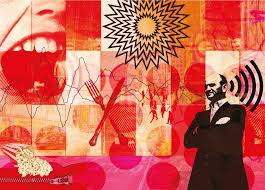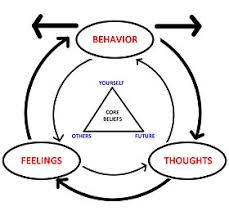 If you deal with a condition known as misophonia, you are probably familiar with the fear, anxiety, or generalized panic that occurs when triggered by a specific sound or noise that may be apparent in your environment. Until recent medicine and technology, misophonia was grouped in with anxiety disorders, but in recent times it has been diagnosed as a separate disorder. This is because misophonia originates from external noises and stimuli while anxiety usually occurs because of internal expressions and emotions.
If you deal with a condition known as misophonia, you are probably familiar with the fear, anxiety, or generalized panic that occurs when triggered by a specific sound or noise that may be apparent in your environment. Until recent medicine and technology, misophonia was grouped in with anxiety disorders, but in recent times it has been diagnosed as a separate disorder. This is because misophonia originates from external noises and stimuli while anxiety usually occurs because of internal expressions and emotions.
Since being diagnosed as a separate condition for anxiety, different treatments have been available. If you suffer from misophonia and are looking for a way to treat your disorder, cognitive behavioral therapy may be a solid option for you.
What is Cognitive Behavioral Therapy?
Cognitive behavioral therapy, often going by the acronym of CBT, is often regarded as one of the best available treatments for noise disorders like misophonia. This is because it is a form of therapy that helps individuals talk through their problems, as well as work on fixing or altering the way they behave when triggered. Therapists who use cognitive behavioral therapy focus on changing the way their patients feel and think when a trigger is played or acknowledged. This changes their thoughts from a strongly negative perspective to understanding the positive of the situation.
Therapists will help individuals with misophonia in various ways including allowing them to feel what they’re feeling instead of suppressing their emotions. This is because it is widely acknowledged that suppression can directly relate to stronger symptoms and a more negative experience. Hiding your feelings can do more harm than good, so cognitive behavioral therapists work with patients to determine how they can get past their condition.
How Does Cognitive Behavioral Therapy Help?
 When or if your doctor recommends going through cognitive behavioral therapy, you may be concerned about how this would possibly help your condition and symptoms associated with misophonia. Thankfully, there have been studies that show how cognitive behavioral therapy positively impacts misophonia patients. This is because misophonia often begins due to a triggering life experience relating to your environment or upbringing.
When or if your doctor recommends going through cognitive behavioral therapy, you may be concerned about how this would possibly help your condition and symptoms associated with misophonia. Thankfully, there have been studies that show how cognitive behavioral therapy positively impacts misophonia patients. This is because misophonia often begins due to a triggering life experience relating to your environment or upbringing.
CBT therapists can help you identify what has led to your misophonia and work to develop a more positive perspective on the situation. Over time, this will lead to a lessening of your symptoms when exposed to potential triggers. The use of cognitive behavioral therapy can strongly and significantly impact the lives of those who deal with the syndrome of misophonia, as it will allow them to recognize why their condition began and how to move forward from it in the future.
Get Help Today
It is important to get help for misophonia if you suffer from symptoms associating with it. This is because the more you suffer or suppress your emotions, the worse your condition can get. Using cognitive behavioral therapy is just one of the many treatment options of misophonia that may be available to you. Talk to your doctor today if you believe you may be suffering from misophonia.
If you’re unsure of where to begin, be sure to schedule an appointment at the Misophonia Cognitive Center with Steven Katz LCSW. Here, we can help you find solutions to your symptoms and conditions.
Live a happy and healthy life by seeking treatment for your misophonia – it’s never too late to feel both physically and emotionally stable!
